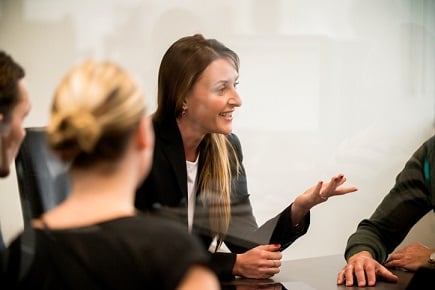The seven years Helen Mackay spent leading the In-House Lawyers Association of New Zealand (ILANZ) has given her a first-hand look at what in-house teams need the most.
On the job, several general counsel sought advice on the best models for their legal teams and asked for help finding talented in-house lawyers for their teams at short notice. She also encountered many in-house lawyers who were looking for flexible legal opportunities.
Her work at ILANZ – which also focused a lot on the strategy and performance of in-house teams and the development of leading practices – and her two decades’ worth of experience in different in-house teams in New Zealand and the UK, has led her to establish
Juno Legal, which is now on a mission to elevate in-house teams across the country.
“I got to understand what it is that distinguishes a high-functioning legal team. There are common factors across them all, but these teams are also all driven by the unique DNA of the organisations they serve,” Mackay says. “What I’m really focused on is bringing that knowledge to the profession and helping to enhance the capability and standing of all in-house legal teams.”
The model the firm uses is well-established outside of the country. But in NZ, Juno Legal is one of the first.
“We see it as a hybrid between an in-house legal team and a traditional external law firm, and it complements both of those models. Having a helicopter view across the in-house profession means we know how the landscape is changing and what the in-house legal innovators are doing,” Mackay says.
Juno Legal is focused on three service offerings at the moment: legal resourcing, in-house legal team strategy, and legal technology.
Mackay says that most legal teams are resourced just for business as usual. Large projects or key personnel gaps can quickly overrun these teams, which is where Mackay and her team come in to find the best support clients need on short notice.
“Smaller companies may not justify having a full-time in-house lawyer, but welcome having a dedicated lawyer one or two days per week or someone to do a comprehensive review of their legal risk,” Mackay says.
In addition to helping in-house teams when staffing support is needed, Juno Legal also helps improve the structure, operations, and practices of in-house teams. Through its legal technology service, the firm also helps teams use technology better, which is more complex than just recommending clients buy new pieces of software.
The firm’s legal technology service is led by Matt Farrington, an experienced in-house lawyer who has a master’s degree in IT law and e-commerce. Farrington doesn't advocate the use of technology for the sake of technology, Mackay says.
“Sometimes organisations might need training and support to use existing technology better,” she says. “We’re not technology vendors. We don’t come in and try and push any particular software. Our role is to understand what you’re trying to achieve and how technology can help you do that – whether it’s technology you currently have, or if there’s something out there that would deliver a better outcome.”
With this suite of services, Juno Legal is growing fast. Apart from Mackay, who is the director and lead consultant with in-house teams on strategy and performance, and Farrington, who leads the technology service, the firm also has Marissa Flowerday and Jenny Spillane. Flowerday was previously head of legal at TradeMe, while Spillane is a senior commercial lawyer with company secretarial and compliance expertise.
The team, which has a strong talent bench of lawyers available to step in at any time, will also be adding several more high-profile former general counsel in the next few months to provide senior strategic and project expertise, Mackay says. In the next six months, Juno Legal plans to refine its offering and continue to build its knowledge base in the NZ market.
The firm is set on enhancing strategy and performance of as many in-house teams in the country as possible and on creating more flexible career pathways for Kiwi lawyers. It’s also focused on continuing to learn from the start-up culture and making sure it practice what it preaches.
“We are taking lessons from the innovation sector and have built the firm as a lean start-up, not as a traditional law firm. We make sure that everything that we advise our clients in terms of strategy, performance and technology use, we’re applying to ourselves as well and being very disciplined,” Mackay says.
The response so far has been fantastic, Mackay says. In-house teams, general counsel, and the rest of the legal profession have been incredibly welcoming and warm towards the startup.
“We’ve been contacted by prospective clients from our current networks and through word-of-mouth, which is great because they’re obviously hearing what we’re offering and it's what they need,” she says. “Several general counsel who used to consult me from time-to-time in my former role have jumped at the opportunity for me come in and work with them at a much deeper level.
“The firms used to frequently provide seconded resources into legal teams, but they tell us they’re finding these services harder to provide. The big firms are focused on efficiency and are running leaner models. And so sometimes when they can’t meet their clients' needs, they kindly refer their clients to us and we’re able to help,” she adds.
It appears the legal community is backing the nascent start-up and wants it to achieve its lofty goal. One top general counsel summed it up nicely, according to Mackay, when she was told: “a rising tide floats all boats.”
Related stories:
Seizing opportunity from challenges
Staying relevant in the changing business of law

